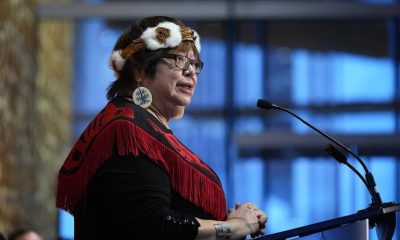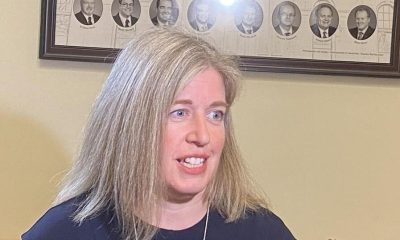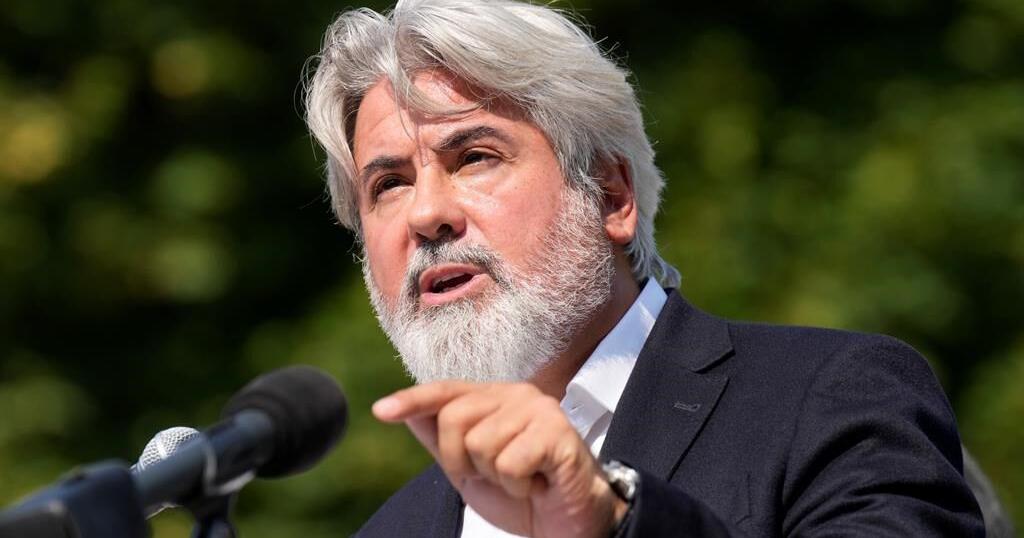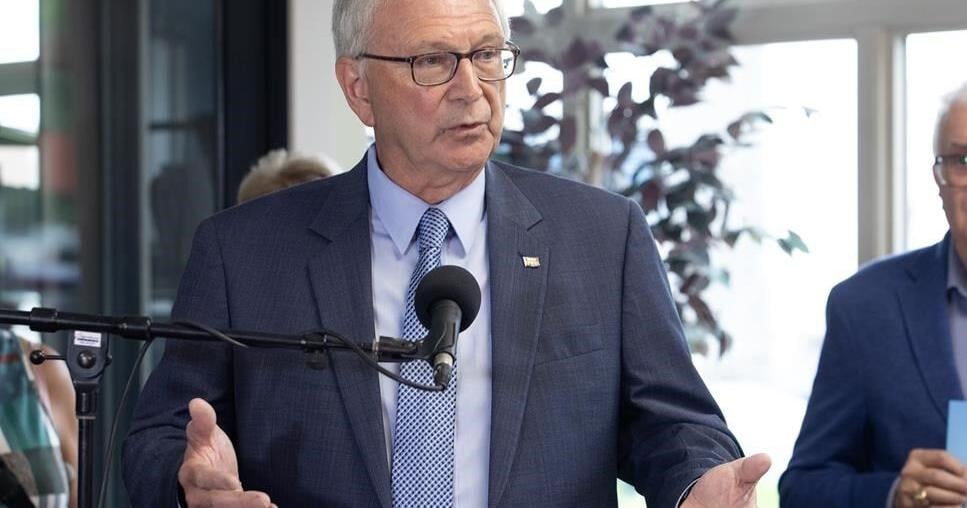By
Owen Bennett-Jones
A new book, which traces the turbulent history of the Bhutto dynasty, examines the relationship between Benazir, the first woman prime minister of Pakistan, and her polo playerturned-politician husband Asif Ali Zardari.
During her second government, Benazir Bhutto told an aide that you needed to have $200–300 million to go into an election so that you could fund your candidates and secure their loyalty. While many of her advisers gave her plenty of interesting suggestions about what to do, Asif Ali Zardari actually did things, proving himself to be a man she could rely on. His ability to understand what she needed and to do it without fuss or even discussion was the foundation of their relationship.
Throughout the marriage, whatever complaints she had about him — and there were many — he delivered for her, perhaps explaining why she described him as ‘my lion’. The TV journalist Daphne Barak, who knew the couple, believed Benazir was “completely and utterly in love with her husband” and always wanted to please.
In turn, he was charming and chivalrous. Barak recalled telling Benazir in front of Zardari that the French politician Ségolène Royal resembled her: “Asif responded forcefully and immediately. ‘Nobody is as beautiful as my wife,’ he said. Benazir blushed deeply. She loved him saying that.”
It was a relationship most outsiders could not fathom. Benazir made little secret of how her husband at times hurt her feelings. She revealed some of what she felt in a heart-toheart with Hillary Clinton in the White House at the height of the Lewinsky scandal. “We both know from our own lives that men can behave like alley cats and it is accepted,” she told Hillary. Divorce was never a possibility, first because it would have been an admission of failure, but secondly because Benazir was too conservative to give up on the marriage. After all the years of his imprisonment they both became used to living separate lives, but for all that there was a genuine bond to the end.
As the prime minister’s consort, Zardari found himself in a difficult situation. Pakistani men of his era expected to be in charge, and, more often than not, he found himself trailing in the wake of a woman who attracted adulation wherever she went. The fact that most of her posh friends looked down on him as socially inferior made it worse. During a visit to the UK in 1988 Benazir and Zardari attended a dinner party in London. As they left, she signed the hosts’ visitors book: ‘Benazir Bhutto, Prime Minister of the Islamic Republic of Pakistan, Government House, Islamabad’. He wrote: ‘Asif Zardari, a nobody’. He knew his place.
When Benazir became prime minister, the newly married couple moved into a government building near the parliament called Sindh House and she worked in the prime minister’s secretariat. Zardari also started working from an office in the secretariat. When officials asked Benazir what to do about the large numbers of people thronging into his office, she told them that their job was to keep him happy. In the early years of her time in power she thought she had enough to cope with and wanted to avoid picking fights with her assertive husband too. But senior PPP colleagues did not see it like that and insisted he should conduct his business elsewhere. Frustrated and refusing to back down, Zardari moved to Karachi, obliging Benazir to fly down with baby Bilawal every weekend to see him.
Asif Ali Zardari rose to prominence after his marriage to Benazir in 1987. After her assassination in December 2007, he led PPP to victory in the 2008 general elections (GETTY IMAGES)
Rumours about Zardari’s financial dealings started circulating just months into the administration. Perhaps mindful of the Bhuttos’ estates, Zardari always believed that the ownership of property conferred social weight and power, and as early as mid-1989 the newspapers were asking questions about his growing property interests. Prime Minister’s House, one opposition leader complained, had become a stock exchange run by Zardari. There were also complaints about nepotism, with his father becoming chair of the parliamentary Public Accounts Committee and his brother-in-law head of the Karachi Development Authority, although Asif Zardari has consistently denied any wrongdoing in public office. But while Benazir was content to let him do his business uninterrupted, Zardari did not get a free pass on everything.
The couple’s marital disputes trickled down to their advisers, who used to joke that there was an ‘A’ team backing Asif and a ‘B’ team with Benazir. In 1991 there were rumours that Benazir briefly considered leaving him and some on the ‘B’ team encouraged her to do so. But those on the ‘A’ team reckoned that, either for personal reasons or to avoid a scandal, she would never walk out of her marriage. They were right — as Benazir’s closest friends have said, she was at heart a conservative woman who believed that marriage, however difficult, was for life. Or as Zardari rather unromantically put it when asked about the rumours: “She behaves as an Eastern wife should behave. Why should she dump me?”
After the fall of Benazir’s first government, the search for evidence of financial malpractice began. One of President Ishaq’s most trusted advisers, the civil servant Roedad Khan, was made a federal minister in the caretaker government and given the task of securing some corruption convictions. Khan set up a special cell with dedicated tribunals to process cases against Benazir, her husband and some of her ministers. Zardari was the prime target, and the statuses of the various cases against him were to become a running theme of Pakistani politics for the next two decades. After some initial investigations Roedad Khan selected six cases, one of which alleged that Benazir had allotted 545 residential plots in Islamabad to PPP leaders at throwaway prices. Khan told the president that the court proceedings should not take more than two months. Yet, for all his much remarked upon capability as a bureaucrat, Roedad Khan had not appreciated the slothful practices of the Pakistani courts. Two years later, none of the six cases had made any significant progress. “We soon realised,” he later wrote, “that under our existing judicial system it takes longer to get an answer from a respondent in a reference case than it takes to send a man to the moon and bring him back”.
As for Zardari, on October 11, 1990, during the election campaign, he was arrested in connection with the alleged kidnapping of someone who owed him money. The allegation was that he strapped a bomb to the man and said that if he did not go to a bank to withdraw $800,000 there and then, the bomb would be exploded by remote detonation. Zardari denied the charge, but the case led to his first period of imprisonment. There would be many more. But the whole process was hopelessly politicised: when the PPP was in power, the cases against him went away. When it was in the opposition, they came back.
If she believed an interlocutor was discreet Benazir would, on occasion, discuss the issue of corruption as a generalised practice. In a surprisingly unguarded interview with the American Academy of Achievement in 2000 she said, while denying personal involvement, that she wished she had done more to tackle corruption: ‘We all knew kickbacks must be taken… these things happen.’
Benazir Bhutto had to enter politics at a young age after her father was hanged to death in 1979. It was while she was serving as the chairperson of Pakistan People’s Party that she met businessman Asif Ali Zardari, whom she later married on December 18, 1987. It was an arranged marriage
Politicians everywhere, she argued, made money. The difference was that while Western politicians did so after they left office, their counterparts in the developing world did not have that option. The US journalist Ron Suskind once put it to her that his high-level sources in the US government had told him that she was making ‘real money’. There was no denial. Rather she said, “Let me explain how it works. In your part of the world Dick Cheney is vice president and then he goes to Haliburton to make his money. In this part of the world you make your money whilst you are in office. It is not that different.”
There were many other rationalisations. She had to provide for the next generation. Didn’t her children deserve some compensation for being brought up in the glare of publicity? Should politics lead to her premature death, wasn’t it reasonable that her offspring should have enough to look after themselves? If she had given industrial permits to relatives and friends, what was wrong with that? Wasn’t it fair to make up for what General Zia had taken off them?
While Benazir was sometimes willing to have private conversations about these matters, there were lines she would not cross. US Ambassador Robert Oakley, who got to know her well during her first government, later said she would justify making money with the argument: ‘my enemies practiced it; why shouldn’t I?’ But the moment Oakley raised Zardari’s alleged activities, she would clam up, with strong denials of any wrongdoing. “She was fiercely defensive about her husband. She was terribly in love with him; she could never deny him anything. And he took and takes advantage of that.”
The only time that Benazir gave any ground on Zardari came when it was politically expedient for her to do so.
In 2001, when she was at the start of her long campaign to return for a third stint as prime minister, she faced a barrage of criticism about Zardari’s conduct during the first and second governments. For PPP loyalists, nervous of criticising Benazir, it was convenient to say that all the corruption had been his fault and he had led her astray, and that if she wanted to make a comeback, she should do so alone.
She responded to this criticism with unusual frankness: “OK. He is not an angel. Maybe he did things that were wrong. He is man enough to say, ‘I did it’ in a fair and impartial enquiry. But what about all those others…”
A 1998 exchange of letters with the highly regarded PPP senator, lawyer and human rights activist Iqbal Haider revealed another aspect of her personality that even some of her most ardent supporters found difficult to defend: the feudal mindset she never escaped. Unlike virtually any other senior member of the PPP, Iqbal Haider had had the courage to tell Benazir what he thought of her husband, writing to her that he believed Zardari had been one of the main reasons for the dismissal of the PPP government and that if his role was not diminished the party would continue to suffer. Benazir’s response brimmed with her sense that, while she had the right to lead, others with more modest backgrounds did not. She accused Iqbal Haider of failing to show enough gratitude for having been made a senator and of forgetting where he came from. Her feudal attitudes were never far from the surface.
Source: – Mumbai Mirror
Source link
Related
































